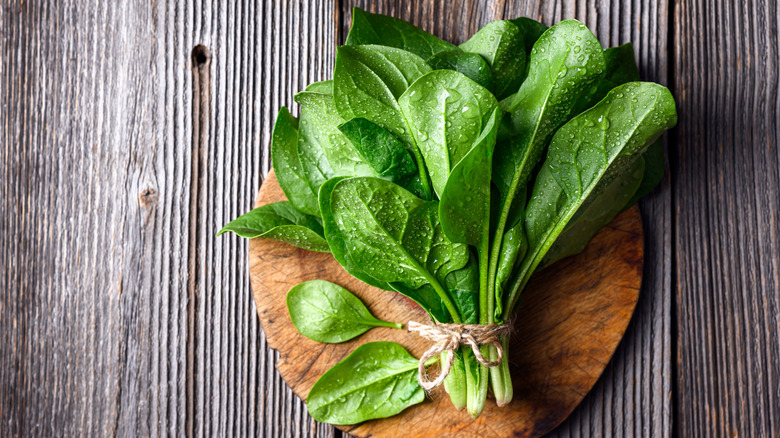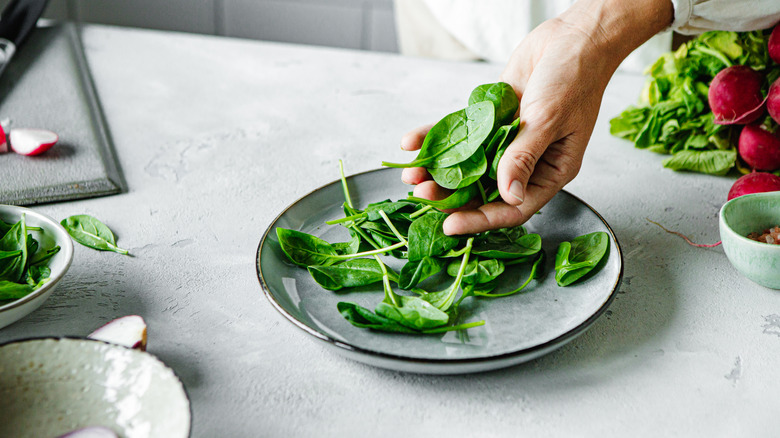Why Reheating Leftover Spinach Might Be A Big No-No
Spinach is a healthy leafy green that goes in many dishes, from a delectable spinach artichoke dip to cheesy lasagnas and pastas. It's rich in essential nutrients like vitamins K, A, and C, as well as magnesium, iron, and fiber. Spinach is also low in fat and calories, making it one of the best vegetables you can put in your daily smoothies or seemingly any other dish.
As healthy as spinach is, though, there's one way to make it that may not be so good for you: reheating it. Reheating food readily changes its chemical composition, and not necessarily for the better in spinach's case. This step can turn the spinach's healthy nitrates into nitrites and nitrosamines, both of which can have adverse effects on the human body when consumed in excess (some nitrosamines have been linked to some cancers, per Healthline).
Honestly, you're not missing much when you skip reheating spinach. It's not a food that comes out of the microwave well or even tastes very good when served hot in the first place, at least not on its own. In the case of plain leftover spinach, you're best off just mixing it into a salad. That said, don't panic if you have been reheating the green, as the short-term effects of eating reheated spinach are basically nonexistent. Nitrites and nitrosamines don't act quickly and their effects are unlikely to be noticed after just one plate. So don't fret if you've been reheating spinach before now or plan to make the occasional spinach-infused dish in the future.
How dangerous is reheated spinach?
The nitrites that reheating spinach creates aren't necessarily the big issue here, as the real potential problem is the nitrosamines. Reheating spinach can turn the nitrates and nitrites into N-nitrosamines, a known carcinogen that can cause different forms of cancer (via "Encyclopedia of Toxicology"). Per a 2017 paper published in Oncotarget, these nitrosamines can also cause liver damage and lead to major issues like cirrhosis. While it does take large amounts and several years to see any effects, those results can be very serious, so you may wish to cut out the regular doses of reheated spinach to preserve your long-term health.
To be on the safe side, it's best to make spinach-based foods in small batches to avoid heating up leftovers, don't use super-high heat when reheating, and don't store leftover spinach for extended periods of time (as suggested by research published in Foods). Once in a while won't harm you, but constant consumption could lead to those health effects.
It doesn't matter how you heat it up, whether it's the microwave, oven, or air fryer, as it's the application of heat that matters. That's not to say you should avoid cooking recipes like creamy Tuscan chicken that feature spinach, as the research into these risks is ongoing and spinach also brings plenty of healthy nutrition to the table. You're likely fine as long as you don't keep it warm for very long or continually reheat it. Just try to finish them in one go instead of saving some for tomorrow.

